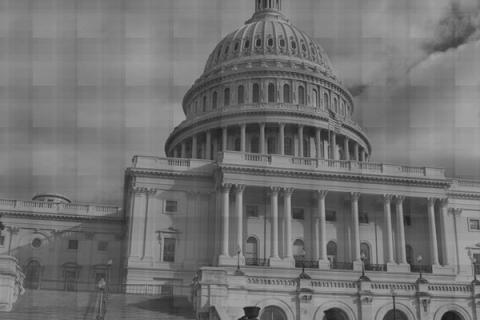Democratic Assemblyman Felipe Fuentes unveiled the California Opportunity and Prosperity Act Friday, which would allow nearly 1 million undocumented immigrants to openly live and work in California with no fear of deportation by the state. The proposal was filed with the state Attorney General's Office, kicking off the process of gathering over 500,000 voter signatures to put the initiative on the ballot in 2012.
Supporters argue that the approach is "common sense" and necessitated by the federal government's inability to take the lead on comprehensive immigration reform. They also make a fiscal policy argument, suggesting that:
"...the initiative could generate up to $325 million in new tax revenue from undocumented workers that could assist education, public safety and other state programs."
Opponents disagree about the bill's merits, arguing that it's just an attempt to side-step federal immigration law. Republican Assemblyman Tim Donnelly suggests the policy subverts the rule of law:
"There's a proper process for coming to this country. Why don't you respect that?"
But is Donnelly suggesting that the current process should never, ever be changed? That it is above criticism or reform? What if California's voters decide they want a new proper process for coming to this country? The very existence of so many undocumented immigrants is evidence that the current process has its flaws. Any kind of widespread black market-- whether for alcohol during Prohibition or for immigrant labor right now-- is a strong indication that the government's policies do not reflect or account for economic realities.
Conservatives should consider that the free market they usually claim to support can apply to immigration as well. Republicans are usually quick to point out that the bureaucracy and legislature in Washington cannot possibly regulate the price and quantity of things like health care or education with any degree of economic effectiveness. Why shouldn't this reasoning apply to the price and quantity of immigrant labor? Arguably one of the greatest driving forces behind the explosion of economic productivity in the United States during its first two centuries of existence was an unprecedented level of freedom in the flow of ideas, capital, and labor across its borders. Borders do not have to be barriers. They can and should delineate the sovereign territory in which a nation's laws will be enforced, but that doesn't require preventing or slowing people, goods, and information from entering and enriching that sovereign territory.
Some conservatives (like radio personality Michael Savage or former U.S. congressman Tom Tancredo) may suggest that the issue at hand is not economics but culture, and that the sustained flow of immigration from America's neighbors to the south diminishes America's culture. But just what do they mean by this claim? What aspect of Latino culture do they find objectionable? Is it their strong emphasis on family? Their work ethic? The religious faith of so many Roman Catholic Latinos? Their tendency to be pro life? Their respect for classical masculinity and "machismo?" These all sound a lot like conservative values to me. From a conservative point of view, an influx of hard-working immigrants from Latin America can only strengthen American culture.

